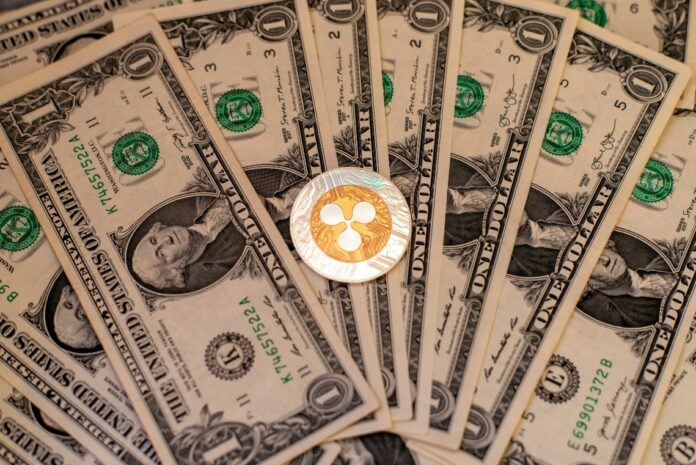In this article we delve into one of the most controversial cryptos on the market, namely Ripple (XRP), the coin favored by lending institutions for cryptocurrency exchanges of interbank money, at least until the advent of CBDCs.
Debates about Ripple’s future often divide the crypto community in two: there are those who believe it will have a disruptive future in the blockchain world and those who believe its infrastructure is contrary to the principles of trustless digital money introduced back in 2008 by Bitcoin.
Whatever your opinion, it is worth mentioning a credit to XRP, which has been able to withstand the storms of the crypto market from 2013 until today.
Today the cryptocurrency is tradable on a wide range of exchanges, often highly liquid and with large trading volumes.
Despite its robustness, the SEC has given Ripple exponents a hard time in recent years, labeling XRP as an unregistered security and accusing the group of arranging its sale to the detriment of U.S. citizens.
The court case was finally resolved a few months ago in court.
Below are all the details.
Summary
What is Ripple (XRP) crypto and how does it work?
Ripple is a blockchain network designed to carry out fast interbank payments, purpose-built to meet the needs of the financial services industry.
The crypto network has a native cryptocurrency, namely XRP, which ranks as the 5th most highly valued crypto asset in the market with a capitalization of $32 billion.
The Ripple project was born in 2013 in the wake of Bitcoin‘s success, the brainchild of Jed McCaleb, founder of Mt.Gox and Stellar, and Chris Larsen, founder of e-LOAN and Prosper.
Larsen and McCaleb’s goal was to create a currency that could integrate with traditional payments, moving some of the transactions that take place on banks’ private databases to semi-open infrastructure.
Ripple and its XRP crypto have often been described as a friend of the bank because of a cryptographic architecture that is close to the needs of regulated financial entities that must comply with certain money transfer laws, as opposed to the basic tenets of the bitcoin philosophy that rejects any kind of fiduciary intermediation.
This is because the XRP Ledger, or Ripple’s underlying database, is designed to grant the power of block validation only to specific participants rather than potentially to any individual as is the case in bitcoin (anyone can become a miner).
The Ripple network, beyond the differences on the technical front, functions like other blockchain networks by allowing users to send and receive crypto using public and private key cryptography, with addresses requiring digital signatures to approve any type of transaction.
Compared to the first network in the crypto world, however, this one has a higher throughput with a TP/s number of 3,400, the activity of approving blocks by XRP nodes being much more streamlined as the software validity rules require a minimum consensus of 80% among network participants.
Another factor that jars with the bitcoiners’ doctrine concerns the approach of the RIpple company and its go-to-market strategy designed to make profit, unlike a multitude of blockchain companies that adopt non-profit models.
Despite having a “semi-open” infrastructure that is not completely free from the clutches of centralization and an attitude geared toward profit-making, the Ripple company has earned a place among the most influential crypto companies in the industry.
Not only was it one of the first to see potential in the cryptocurrency world, but it is also one of the few that has weathered the various storms that have befallen the industry over the past 12 years.
Where can XRP be traded? What are the best markets?
Honorable mention goes not only to Ripple as a corporate but also to the cryptocurrency XRP, which by attracting the attention of a wide range of crypto investors has managed to spread to a wide range centralized exchanges.
Several exchanges have listed XRP and move tens of millions of dollars in volume every day. Moreover, the liquidity factor also plays an important role in the currency’s adoption among trading platforms, as it is one of the highest in the industry, after BTC, ETH, USDT and BNB.
As a matter of fact, it is possible to trade even large amounts of XRP on various exchanges without running into the risk of exaggeratedly impacting the price of the asset itself, which is what happens with lesser cryptos.
The safest and most reliable exchanges where to trade Ripple’s currency are: Binance, Coinbase, Kucoin, Bitstamp and Kraken.
Below is a table offered by Coinmarketcap that lists the 10 best exchanges, with their respective exchange pairs, where you can buy and sell spot XRP.
On the derivatives front, the best platforms are Binance, Bitrue and XT.com
At the time of writing, XRP has a price of $0.60 per unit and has been following a bullish trend since the beginning of the year.
The value of the cryptocurrency is higher than at the beginning of November 2020 and 2022 but is lower than at the same time in the year 2021.
With each bull market XRP moves reasonably well also creating several profit opportunities for holders of the currency. Nevertheless, BTC always manages to bring home better performance.
From now until the end of the year, price projections are bullish for XRP, with the crypto possibly attacking and conquering the $0.8 area.
Bearish scenarios could befall Ripple’s coin should it lose the $0.5 fundamental support. In that case it could easily see a return toward $0.4 and then $0.3.
Is XRP a security? A summary of the court case against the SEC
Ripple and its crypto XRP have been involved in a court marathon against the Securities and Exchange Commission (SEC) that has now lasted almost three years.
In December 2020, in fact, the U.S. federal agency filed a lawsuit against the blockchain-based financial transfer company citing it for engaging in unregistered securities sales activity.
XRP has been framed as a security by the SEC, that is, as a financial instrument that represents the ownership of an entity, in this case the company Ripple.
Investment in XRP would qualify as investment in Ripple itself, the price of the former being proportional to the growth of the latter.
Specifically, based on Howei’s test dated 1946, we can establish a financial security as a security if the latter subtends an investment of money and if at the same time the investment represents a common investment in which any profit is derived from the efforts of others.
The difficulty in applying such principles, now prehistoric, in a market as dynamic as crypto led to the lengthy SEC court case against Ripple.
Appeals and appeals followed one another until a few months ago, when finally in July 2023 Judge Annalisa Torres finally ruled that XRP does not represent a security and hence can be traded freely in crypto markets without Ripple violating financial securities laws in the US.
Since then, several exchanges that had previously decided to delist XRP given the potentially dangerous implications in the still ongoing court case have decided to readmit crypto to their platforms, such as Coinbase.
A month after this historic milestone for RIpple, which was a success for the entire crypto industry, the U.S. federal agency filed an appeal claiming that there are “substantial grounds for difference of opinion” on the laws in question.
Hence, although the matter is not yet officially closed, with Judge Annalisa Torres setting the continuation of the trial for the second quarter of 2024, we can already predict that things will go well for RIpple.
The SEC over the past year has been going after a large group of crypto businesses such as Binance, Coinbase, and Grayscale but is losing all its battles.
In this regard last August 29, Grayscale won a very important victory against the U.S. agency by getting court approval for a review of its application to turn its Bitcoin trust into an exchange-traded fund.




